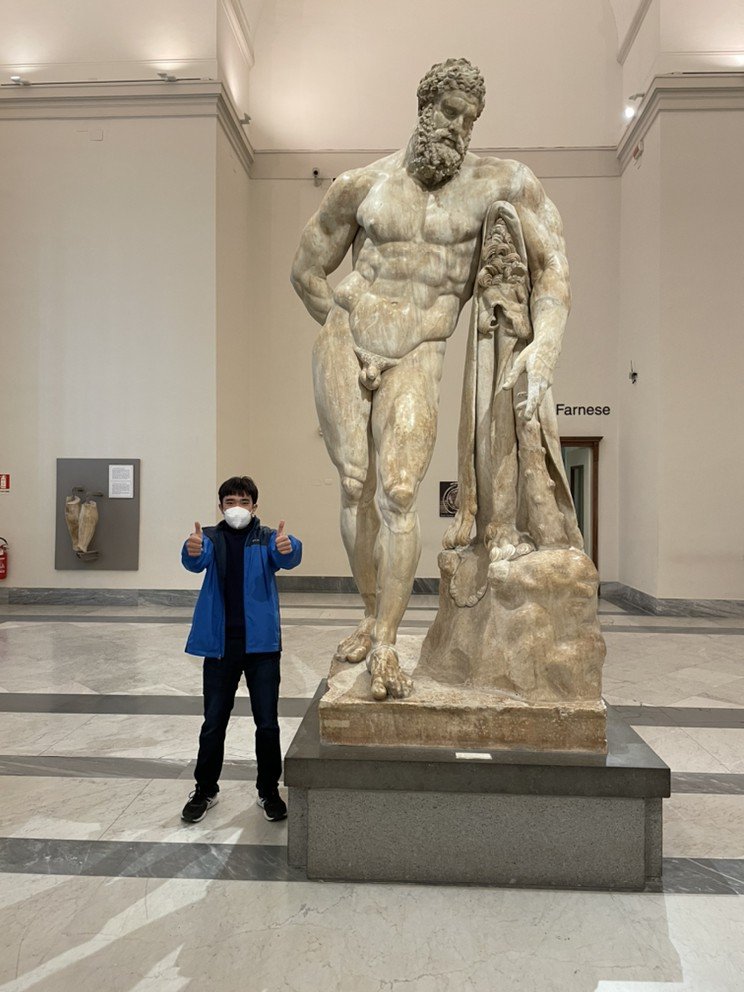Curiosity and Eric Tran
Many students know Mr. Tran as a middle and high school math teacher, but fewer might know about his love for history or that he once won a race at the ancient Olympic stadium in Greece.
“Since I studied Classics in college, I was able to go to Greece for a term,” he says. “We visited numerous archaeological sites, including Olympia, where the original Olympic games were played. I won a race there, but only against a couple of other students, not the cream of the crop.”
Mr. Tran’s passion for both math and history runs deep. He grew up loving math, so it made sense to keep studying it in college. But over the years, he found himself drawn more and more to history, especially ancient Greco-Roman history. That’s what led him to double major in math and Classics. “Latin and math, for instance, are precise and formulaic,” he explains. “However, what I like most about the two subjects are the human stories they reveal. Their study of math reveals a field rife with collaboration, dead ends, false leads, paradigm shifts, and human necessity. A study of the Classics reveals stories of small and great people, the society they lived in, the beliefs they held, and the intrinsic humanity that stretches even to today.”
Before coming to New England, Mr. Tran lived in Southern California, and adjusting to the East Coast came with a few surprises. “Southern California has no seasons: you have warm, slightly less warm, and hot,” he jokes. “We used to put on heavy jackets when the weather dropped below 50.” Still, he’s grown to love the distinct seasons, the nearby cities, and the public transportation. If he had to name one thing he misses, though, it’s the food. “I do think the Pacific Ocean is better than the Atlantic,” he adds.
As a math teacher, Mr. Tran often sees students who believe that math is just something you’re either naturally good at or not. But he doesn’t agree with that idea. “Sure, some people have a natural disposition to math,” he says, “but the solution to not knowing is the same as it is in any other subject: practice, practice, practice.” He compares it to learning a language: you have to keep practicing until your brain adjusts. “As much as it pains them, I try to get my students to practice math as much as they can until they develop mathematical ways of thinking.”
When it comes to curiosity, Mr. Tran is looking outward. “I am curious about Newman’s connection to the world,” he shares. “How do we fit into the city of Boston? What do others think of us? How widely do our students disperse after college? How do students affect change in different countries?” With Newman’s global point of view, he hopes to see the school continue making a real impact, both here and beyond.

